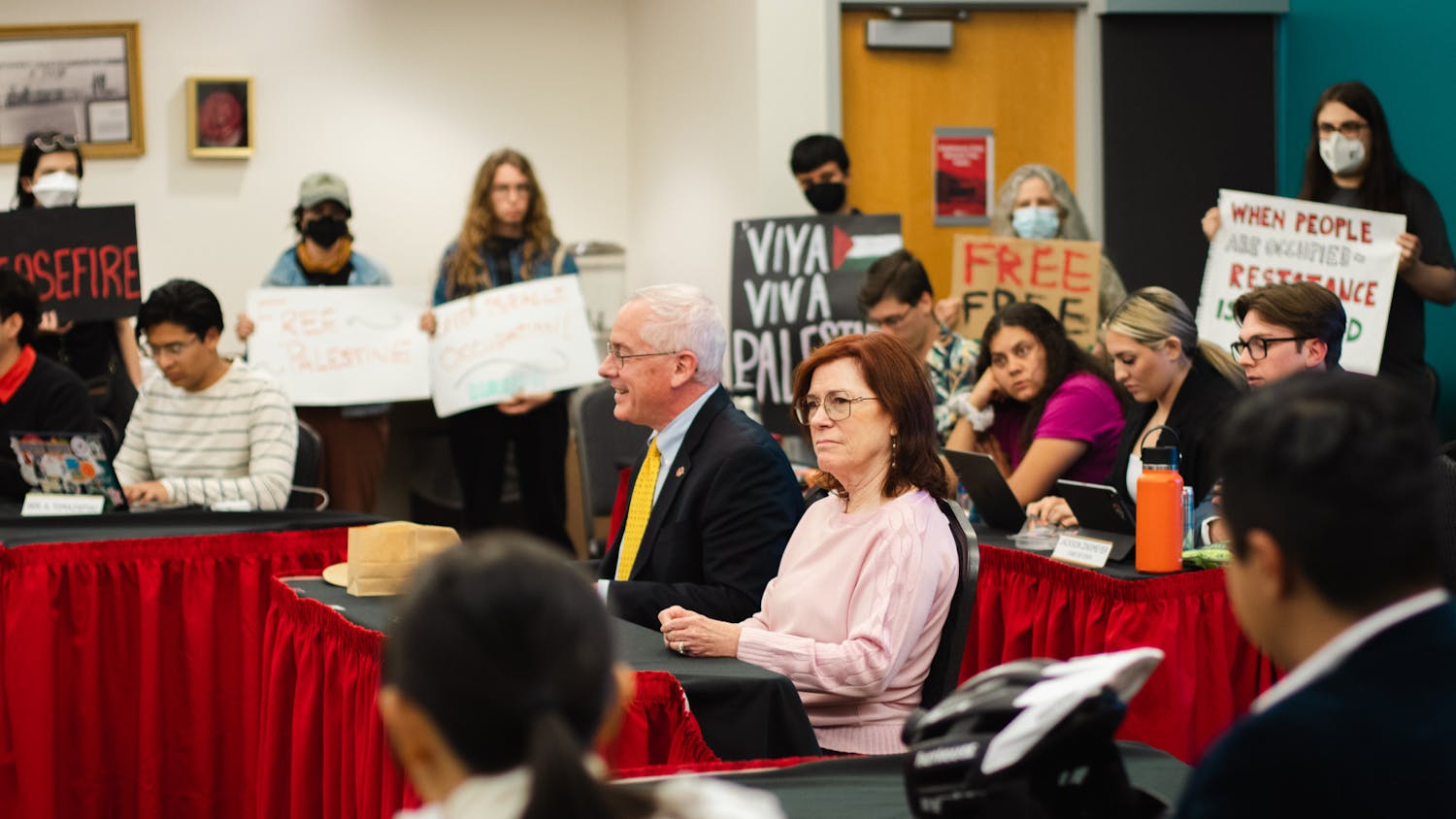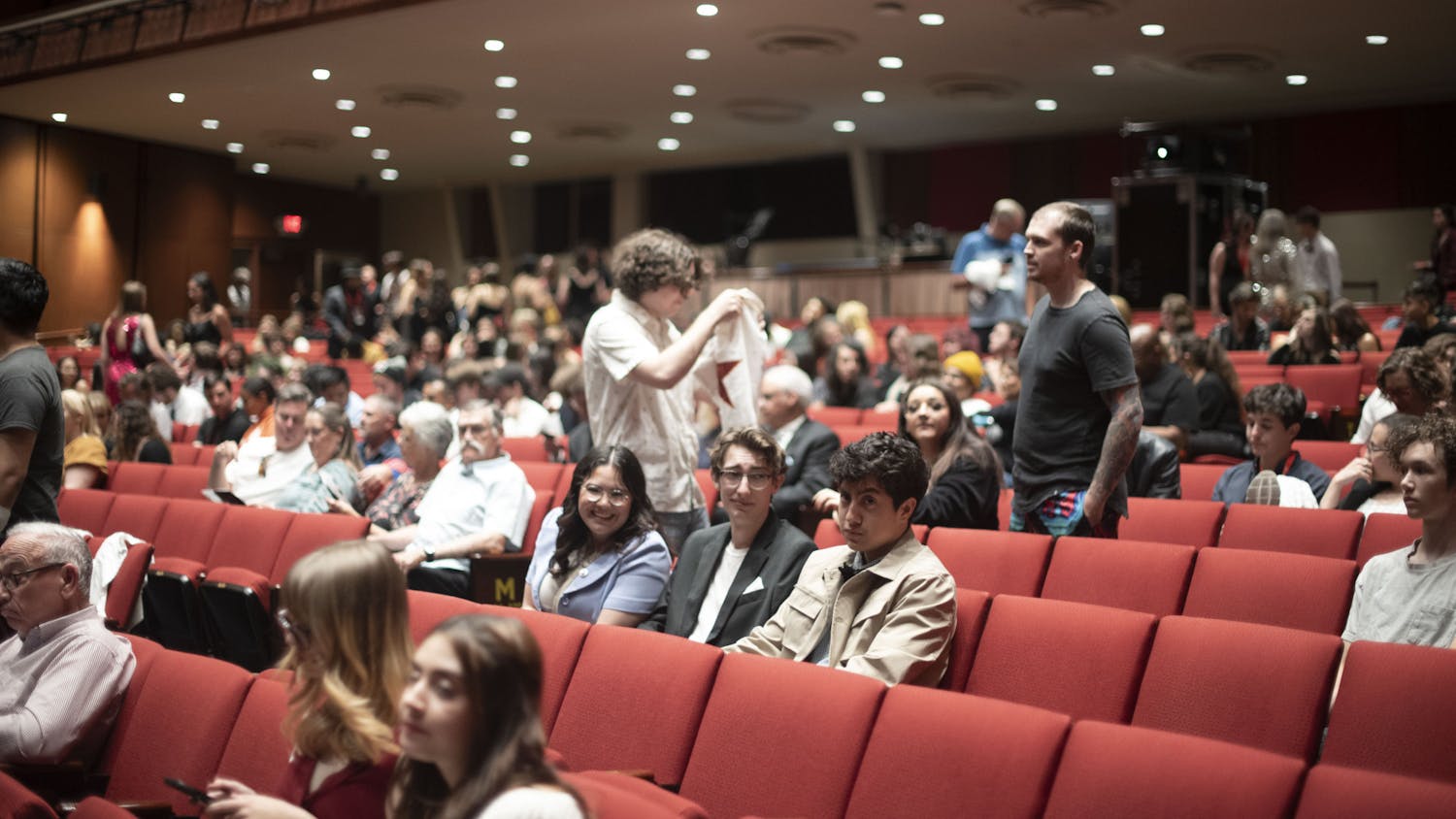opinion@dailylobo.com
Yay, the Holiday season is finally over — that time of the year when most Americans pretend to go along with all that “peace on earth, good will toward men” crap. What a sham. I’m annoyed that so many “good Christians” can totally ignore the teachings of Jesus Christ for eleven and a half months out of the year and then suddenly decide to care about other people for two weeks. They call it the “Christmas spirit.”
Well, I don’t buy it. You can keep your false charity and your hypocrisy, thank you very much.
Over the break, I read an excellent book by Charles Derber called “Sociopathic Society.” Derber is a well-known professor of sociology at Boston College and the author of several books. He is recognized by various historians as one of the most astute social critics of our time.
In his book, Derber warns readers that an empire based on unrestrained capitalism, rampant militarism and violence, inequality and conspicuous greed — with no concern for preservation of the common good — is doomed to fail.
Derber connects the logic of “wilding” to the American Dream. The term “wilding” was coined in 1989 following the brutal beating and rape of a female jogger in Central Park. When caught, the youths who viciously attacked the woman showed no signs of remorse and instead felt smug satisfaction with their crime.
Long valued as an agent of upward mobility and progress, the Dream has now turned pathological. Derber likens modern-day America to a wilding culture.
In a sociopathic society, anti-social behavior is the inevitable outcome of the dominant social values and power structures embedded within the society itself. Derber believes the U.S. is devolving into a full-blown sociopathic society.
I say we’re already there. Most sociopathic behavior is perfectly legal, and it is perpetrated by individuals as well as governments, financial institutions and corporations.
Sociopaths only care about themselves and how much material wealth and power they can possess. They place more value on inanimate objects like assault rifles, cars and stock portfolios than they do on other human beings.
The sociopath isn’t concerned with what anyone else thinks of them, either; all that matters is what they think of themselves.
Any kind of selfish, juvenile behavior they exhibit is perfectly acceptable because it gets them what they want — and for a true sociopath, their ‘rational self-interest’ is the only thing that matters. Your well-being is irrelevant.
Get content from The Daily Lobo delivered to your inbox
The relationship between the 1 percent and the rest of us is characterized by fear, distrust and class and racial animosity. As a result, there’s less compassion and more individualistic, sociopathic behavior. Derber argues that sociopathy is most prevalent — and dangerous — in the upper echelons of the social strata, not among the masses. He invokes the old Greek adage, “The fish rots from the head first.”
Prevailing social norms are largely constructed and enforced by the plutocracy and do not necessarily represent the values or interests of the larger population. He blames most of our problems on an institutionalized corporate environment of greed and corruption which places profits over people, fully sanctioned by a larger sociopathic system.
America’s sociopathic ambitions coincide with the plutocrats’ imperialistic desire for worldwide economic domination. Derber sees the planet’s resources and much of the human population being sacrificed on an unsustainable path which leads to virtual slavery for most of the population and risks destroying the system of capitalism from within.
Derber focuses much of his ire on globalization. He calls the economic agenda of the far-right a “grave danger to civil society,” and he’s certainly not alone in arguing that the one percent is intrinsically parasitic. Wealthy corporations have always mooched a great deal of their wealth from the state.
Laissez-faire capitalism, Derber writes, is essentially a form of corporate welfare, undermining the most basic economic principles through unbridled monopolization and cartelism.
Extreme inequality and increasing class divisions are the inevitable results of neoliberal ideology. Over time, economic stagnation sets in and these divisions harden and worsen — intensified by attacks on unions and public services until an epidemic of social problems threaten the existence of society itself. The economic crash of 2008 was the predictable consequence of a vast financial Ponzi scheme designed to increase the profits of a corrupt, ‘financialized’ economy, built on digital currency instead of tangible goods.
This model creates unsustainable debt: the systems in place must continually bankrupt themselves in order to survive. Derber demonstrates that the severe ‘austerity’ measures advocated by disreputable economists are simply the expression of elitist preferences to delay the inevitable while offering up yet another opportunity to punish the poor.
History shows that sociopathic societies are depressingly common: Ancient Rome, Nazi Germany, the Soviet Union. They differ from contemporary American society in one fundamental way, however: They didn’t pretend to care.





